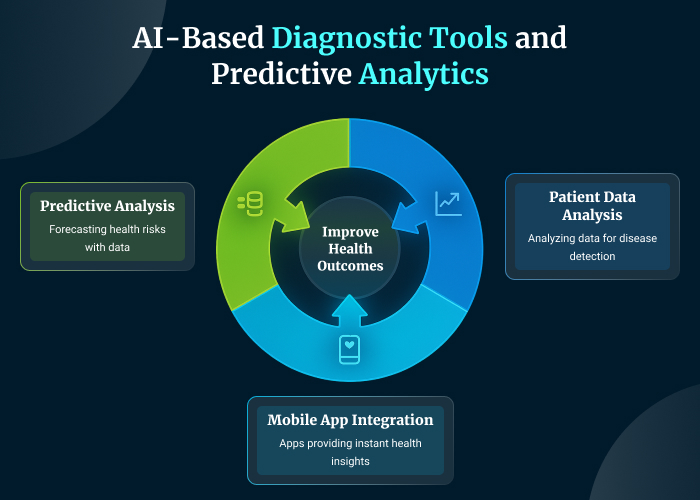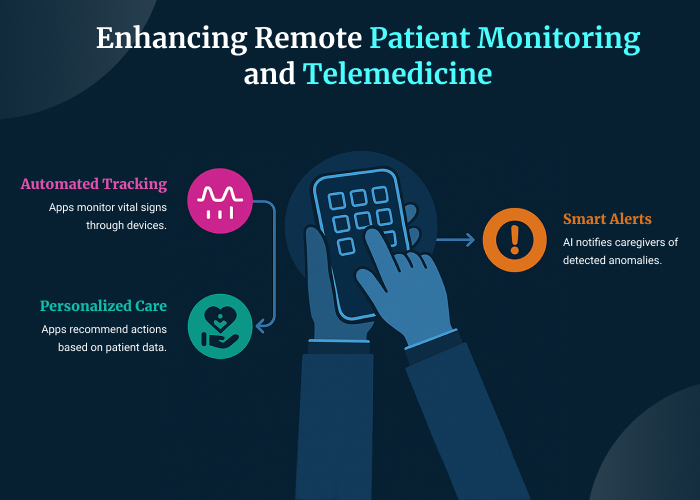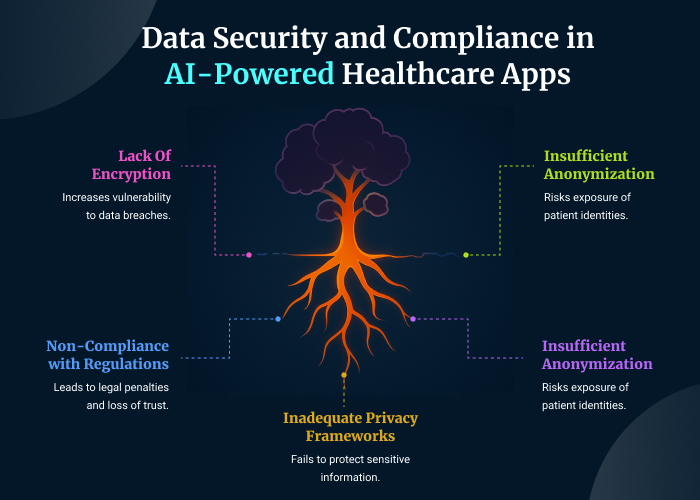In the digital age, Artificial Intelligence (AI) is revolutionizing nearly every industry – and healthcare is no exception. From powering sophisticated diagnostic tools to enabling seamless remote consultations, AI has become a key player in enhancing patient care. At the forefront of this transformation are the mobile healthcare apps, which are now more intelligent, personalized, and accessible than ever before.
Let’s explore how AI is reshaping healthcare through mobile applications, and how it’s creating better outcomes for both patients and providers.
AI-Based Diagnostic Tools and Predictive Analytics

One of the most significant breakthroughs in healthcare AI is the development of diagnostic tools that can analyze patient data to detect diseases with remarkable accuracy. Mobile apps integrated with these AI capabilities can access symptoms, analyse test results, and even suggest possible diagnoses – all within seconds.
For example, AI-driven apps can:
- Detect early signs of disease like diabetes, heart conditions, and cancer by analyzing user-reported symptoms and health data.
- Use predictive analytics to forecast potential health risks based on historical and real-time information.
- Alert users to seek immediate medical attention when abnormal patterns are identified.
These tools empower patients with better knowledge and allow healthcare professionals to make informed decisions quickly, reducing time to diagnosis and improving treatment outcomes.
Enhancing Remote Patient Monitoring and Telemedicine

Remote patient monitoring (RPM) and telemedicine have surged in popularity, especially after the covid-19 pandemic. AI-enhanced mobile apps are now central to this trend, providing continuous, real-time monitoring of patients outside clinical settings.
Here’s how AI adds values:
- Automated tracking: Apps can monitor vital signs like heart rate, glucose levels, or oxygen saturation through connected devices.
- Smart Alerts: AI algorithms analyze incoming data and notify healthcare providers or caregivers if an anomaly is detected.
- Personalized Care: Based on the patient’s trends and behavior, apps can recommend personalized actions, medication changes, or lifestyle adjustments.
This not only helps in managing chronic conditions more effectively but also reduces hospital visits, lowers healthcare costs, and improves the quality of life for patients.
AI-Driven Chatbots for Initial Patient Interaction
Gone are the days of waiting endlessly on hold to talk to a healthcare provider. AI-powered chatbots embedded in mobile apps are transforming how patients initiate their care journey.
These intelligent bots can:
- Engage in natural language conversations to collect symptoms and medical history.
- Provide basic medical guidance or direct patients to the appropriate specialist.
- Assist in booking appointments, sending reminders, and following up after consultations.
For healthcare providers, this means reduced administrative load and more efficient triaging of patients. For users, it’s a convenient, 24/7 support system that enhances engagement and accessibility.
Data Security and Compliance in AI-Powered Healthcare Apps

With great data comes great responsibility. Healthcare apps deal with sensitive personal and medical information, and protecting this data is paramount.
AI solutions must be built with strong data security and privacy frameworks:
- End-to-end encryption ensures that patient data is securely transmitted and stored.
- Anonymization and data masking protect identities during AI training and processing.
- Compliance with regulations like HIPAA (USA) and GDPR (Europe) is non-negotiable for apps handling health data.
As AI becomes more integrated into mobile apps, developers and healthcare organizations must ensure transparency, ethical data use, and user trust.
Conclusion
AI-powered mobile apps are no longer a futuristic concept – they are actively shaping the present and future of healthcare. From accurate diagnostics to virtual consultations and personalized care, these apps are bridging the gap between patients and providers like never before.
As innovation continues, we can expect AI to play an even larger role in creating a more proactive, data-driven, and patient-centered healthcare system. And at the heart of this transformation will be the tiny devices we carry in our pockets every day.
Ravi Bhojani is the Chief Marketing Officer (CMO) at Alian Software, where he spearheads the company’s marketing strategies and drives its brand presence in the competitive IT services landscape. With over a decade of experience in the technology and marketing sectors, Ravi has consistently demonstrated his ability to blend innovative marketing techniques with deep industry knowledge to deliver outstanding results.